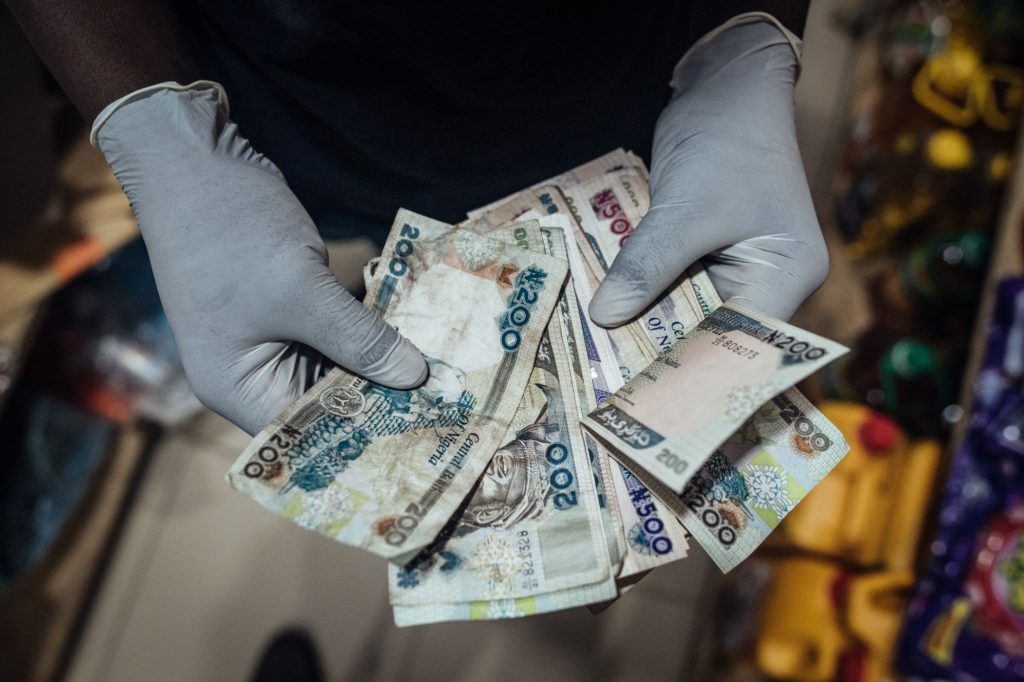Nigeria’s central bank will replace high-value currency notes starting Dec. 15 in a bid to mop up excess cash, rein in inflation and target rising insecurity in Africa’s largest economy.
(Bloomberg) — Nigeria’s central bank will replace high-value currency notes starting Dec. 15 in a bid to mop up excess cash, rein in inflation and target rising insecurity in Africa’s largest economy.
The country’s banking regulator plans to issue redesigned 200, 500 and 1,000 naira notes, Central Bank Governor Godwin Emefiele said at a briefing in Abuja, the capital, on Wednesday. The old notes will cease to be legal tender starting Jan. 31, giving citizens of the West African country, where cash dominate transactions, six weeks to exchange their notes.
Emefiele said 85% of cash in the country is held outside commercial banks, which is undermining the efficacy of monetary policy and the integrity of the country’s currency. He said the amount of cash in circulation has more than doubled since 2015 to 3.23 trillion naira ($7.3 billion)as of September.
“It is unacceptable and indeed it takes the control of money supply out of the hands of the central bank,” Emefiele said. “No doubt we believe it has positive impact on inflation,” which hit a 17-year high in September, he said.
The move to switch the notes may lead to chaos in a country where majority of the population live in rural areas away from bank branches. In 2016, Indian Prime Minister Narendra Modi’s move to ban high-value currency led to a prolonged scramble for cash and slowed economic growth.
Emefiele also argued that reducing the amount of cash in circulation would minimize “access to large volume of money outside the banking system used as source of funds for ransom payments.”
Africa’s most populous country has been faced with widespread abduction-for-ransom crisis.
The bank also plans to mint more of its eNaira digital currency, which launched a year ago but has struggled to gain traction. Only 1 million people have downloaded an eNaira wallet since its introduction and transaction volumes have been negligible.
Digital-Currency Plan Falters as Nigerians Defiant on Crypto
While the introduction of new naira notes is unlikely to have an impact on the currency’s official exchange rate, which the central bank tightly controls, the move could put pressure on the widely-used black market rate, said Samir Gadio, head of Africa Strategy at Standard Chartered Bank.
“Old naira notes could be partly converted to USD in the parallel market, but it is still early too tell,” he said.
Nigeria’s anti-graft agency has warned bureau-de-change operators and lenders not to “assist unscrupulous customers in laundering suspected proceeds of crimes through their system” during the currency exchange process, according to an emailed statement.
Operators must be “wary of currency hoarders who would attempt to seize this opportunity to offload the currencies they had illegally stashed away,” the agency said.
–With assistance from Ruth Olurounbi.
(Updates with comments from anti-graft agency in last two paragraphs)
More stories like this are available on bloomberg.com
©2022 Bloomberg L.P.











